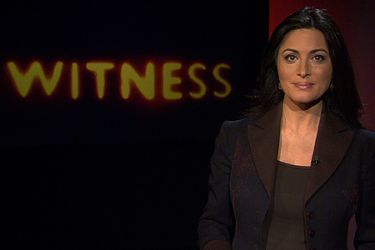
Biography: Ghida Fakhry
Ghida Fakhry is the new presenter of Al Jazeera’s documentary programme, Witness.
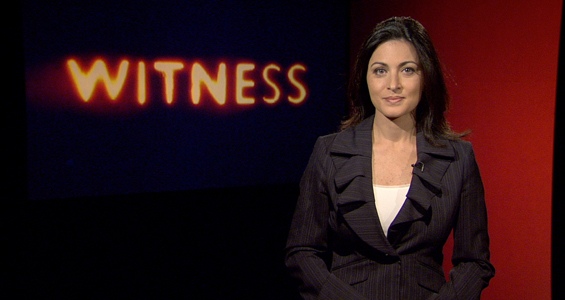 |
Ghida Fakhry is the host of the documentary programme Witness and is one of the primary presenters for the Al Jazeera English News broadcasts from our broadcast centre in Washington.
She served as one of the lead anchors for the channel’s extensive coverage of the 2008 US election, which included hosting a series of special programmes called We the People that focused on the impact of election issues on different communities across the US.
In 2007, she moderated the first plenary session of the UN’s opening Alliance of Civilisations conference in Madrid and moderated a session on the Marketplace of Ideas at the Alliance’s second conference in Istanbul in 2008.
Since joining Al Jazeera English in 2006, Fakhry has conducted extensive in-depth interviews with heads of state and government leaders from across the political spectrum.
Among those she has interviewed are Muammar Qaddafi, the Libyan leader, Hamid Karzai, the president of Afghanistan, Evo Morales, the president of Bolivia, Shimon Peres, the Israeli president, Mahmoud Ahmadinejad, the Iranian president, and Manuel Zelaya, the president of Honduras.
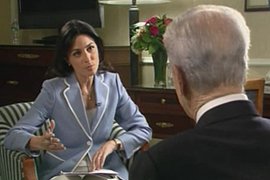 |
| Ghida Fakhry interviews Shimon Peres, the Israeli president |
Drawing on her background in covering the United Nations, in December 2006, she took a critical look at the two-term tenure of Kofi Annan at the helm of the UN in an Al Jazeera special programme – Kofi Annan: Ten Years at the Top.
Her prior broadcast experience includes serving as the anchor for Al Hayat/LBC’s flagship evening news programme The World Tonight broadcast from London, where she conducted in-depth interviews in Washington and Baghdad with Donald Rumsfeld, the then US secretary of defence, and Colin Powell, the then US secretary of state.
Ghida Fakhry began her journalistic career in the mid-1990s in London as a political correspondent for the pan-Arab newspaper Asharq al-Awsat. Since 1995, she regularly covered the general debate of the General Assembly of the United Nations and she reported from New York on the September 11, 2001, attacks.
Born in Beirut, Lebanon, Ghida Fakhry holds a Masters degree in Near and Middle Eastern Studies from the School of Oriental and African Studies (SOAS), University of London, and a Masters degree in International Relations from Boston University.
Presenter Ghida Fakhry shares her thoughts on Witness:
Al Jazeera: What is Witness?
Ghida Fakhry: Witness is Al Jazeera English’s flagship documentary strand, presenting four international documentaries each week which bear witness to the ordinary – and extraordinary – lives of people across the globe.
Our films focus especially on people whose stories are rarely heard – people at the margins of society and people who are somehow surviving the pressures of international news events.
It is through these stories – stories of courage, ingenuity, struggle or sometimes just raw humour – that we try to build up a deeper understanding of the world.
Why are these stories important?
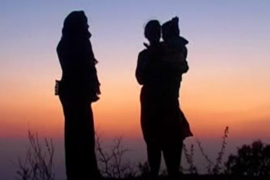 |
| From Bullets to Ballots follows the women of Nepal’s insurgency as they become politicians |
Well, I think a strand like Witness is a vital complement to a global news channel like Al Jazeera English. As news journalists we cover world events as they break and unfold, getting to grips with the powers at play.
Witness films allow us to linger somewhat on the personal experiences behind some of those stories, to consider the on-going events and issues as experienced by people at the grassroots.
So our films are very much rooted in current affairs and global news, but they express a breadth and a depth of experience that can unfold over a half-hour or 45-minute film.
And of course many of our films are told through strong central characters, often with passionate opinions, so we reflect a range of perspectives across the strand.
We work closely with news colleagues and other documentary strands in the channel of course, as we are all essentially in the same business of building up a depth of understanding of global geo-politics.
How does Witness capture “the voice of the voiceless”?
Witness commissions and acquires films from a range of independent filmmakers based all over the world.
We try to use local teams wherever possible and we support new filmmakers too, to bring us their stories, but we also work with some of the very best experienced filmmakers internationally.
Between the four Al Jazeera hubs – in Doha, London, Kuala Lumpur and Washington DC – we try to cover the world in our commissioning, always searching out stories from people who are rarely given air time.
How does Witness vary from other documentary strands out there?
I would say that Witness tries, as much as possible, to show films that are made with people somehow, rather than films that just report about people.
Some of our films are very direct, authored pieces, while others may well be told from a step beyond the direct experience, but usually the tone of a Witness film is empowering in some way, giving an authentic voice to a story.
One of my colleagues once said “we don’t have too many men in suits in our films” and I think they have a point – our films feel very up close and personal – even when they are about important global issues.
What can we expect from Witness in 2010?
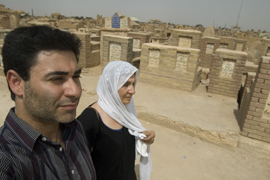 |
| Salam Father follows one Iraqi as he searches for his father and his identity |
We have a number of tremendous films for 2010, kicking off in January with Salam Father, one of our longer Witness Specials, which is a deeply personal and very moving story about broken lives in Iraq.
We also have some excellent films from Latin America, including This Land Is Our Land which looks at the peasant movement in Paraguay and then later in the year Birds of Paradise about an extraordinary theatre group of internal refugees in Colombia.
In March we have some very strong films around women to chime with International Women’s Day.
And of course there will be some strong personal stories from the Middle East during the year.
There are films that will make you weep and some that will have you laughing out loud, but I think all of them make you think. Really, there are too many to mention – I hope you tune in and join me on Witness.